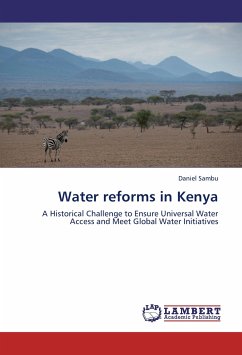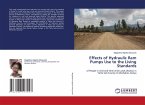Access to water is a key issue for developing countries. Kenya is one such country in which water scarcity and a poor water infrastructure compromise the health and standard of living of the population, and hinder its economic and social development. Despite a long history of attempts to reform the country s water sector and improve water resources management, a large proportion of Kenya s population is still not sufficiently served with water for consumptive, sanitation, and productive purposes. This book examines aspects of water reform and access in the country, including the institutional and historical factors affecting the water sector, and the historical evolution of water resources management from the colonial to post-independence periods. The study shows that the Water Service Providers created to replace the government agencies in the provision of water services during the recent reforms are not efficient and productive enough to meet the MDGs as envisioned by government plan.
Bitte wählen Sie Ihr Anliegen aus.
Rechnungen
Retourenschein anfordern
Bestellstatus
Storno








